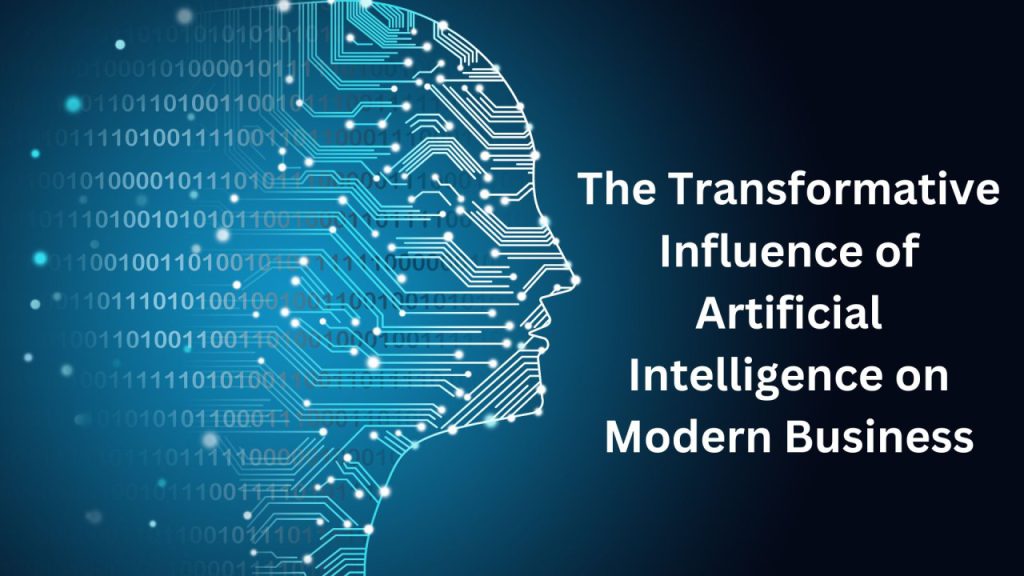The Transformative Impact of AI on Businesses in Today’s World
In recent years, artificial intelligence (AI) has transitioned from a futuristic concept to an intrinsic part of our daily lives and businesses. As we delve into 2023, it’s clear that AI is transforming the business landscape in profound ways. From streamlining operations to enhancing customer experiences, the integration of AI is not just a trend; it’s a necessity for companies aiming to stay competitive. In this blog post, we’ll explore the current state of AI, its applications in various industries, and the benefits and challenges that come with its adoption.
The Current State of AI
AI technology has significantly evolved over the past decade, fueled by advancements in machine learning, natural language processing, and data analytics. Businesses across industries are now leveraging AI to analyze vast amounts of data, automate mundane tasks, and make informed, data-driven decisions. In 2023, it’s not just tech giants that are harnessing AI; small and medium-sized enterprises (SMEs) are also beginning to recognize its potential, leading to a democratization of the technology.
Key Applications of AI in Business
1. Customer Service Automation
AI-powered chatbots and virtual assistants have revolutionized customer service by providing 24/7 support, answering frequently asked questions, and guiding customers through purchasing processes. This not only improves customer satisfaction but also allows businesses to allocate human resources to more complex tasks.
2. Data Analysis and Insights
With the explosion of data available today, businesses can no longer rely solely on traditional data analysis methods. AI tools can sift through large datasets, uncover patterns, and provide actionable insights. This has led to enhanced decision-making processes across various domains, including marketing, finance, and operations.
3. Personalization
AI enables businesses to create highly personalized experiences for their customers. E-commerce platforms use recommendation algorithms based on customer behavior, preferences, and past purchases, leading to higher conversion rates and customer loyalty. Streaming services and social media platforms employ similar techniques to keep users engaged.
4. Predictive Analytics
Businesses are leveraging AI to forecast trends and customer behavior. Predictive analytics can help companies anticipate demand, optimize inventory, and make adjustments to marketing strategies. For instance, retail businesses can use AI to predict which products will be popular in upcoming seasons.
5. Process Automation
Routine tasks such as data entry, invoice processing, and supply chain management can be automated with AI, increasing operational efficiency. Robotic Process Automation (RPA) allows businesses to focus on strategic initiatives rather than time-consuming administrative work.
The Benefits of AI Adoption
1. **Cost Savings**: Automation of routine tasks can significantly reduce labor costs and increase efficiency. Businesses can redirect their resources toward innovation and strategic growth.
2. **Improved Accuracy**: AI minimizes human error, particularly in data analysis and processing. This leads to more reliable outcomes and data integrity.
3. **Enhanced Customer Engagement**: With personalized experiences and improved customer service, companies can build stronger relationships with their customers, leading to increased loyalty and retention.
4. **Competitive Advantage**: Organizations that adopt AI technologies early can establish themselves as leaders in their respective fields, driving innovation and attracting more customers.
Challenges of AI Implementation
While the benefits of AI are substantial, the integration of these technologies poses several challenges:
1. Data Privacy and Ethics
With AI relying heavily on data, concerns around data privacy, security, and ethical use are growing. Companies must navigate regulations like GDPR and ensure responsible use of AI to maintain customer trust.
2. Skill Gaps
The rapid evolution of AI technologies means that companies often struggle to find employees who possess the necessary skills to implement and manage AI systems effectively. Upskilling the workforce or hiring new talent can be a significant challenge.
3. Integration with Legacy Systems
Many businesses operate with legacy systems that may not easily support the integration of AI tools. Transitioning to newer technologies can be costly and time-consuming.
4. Resistance to Change
Employees may be hesitant to embrace AI, fearing job displacement or change in their roles. Ensuring buy-in from all levels of the organization is crucial for successful AI implementation.
Conclusion
As we navigate through 2023, it is evident that AI is not just an added layer to business operations; it has become an essential component of modern business strategy. Companies that effectively leverage AI will find new opportunities for growth, innovation, and improved customer experiences. However, to reap the benefits, organizations must also address potential challenges thoughtfully and strategically.
The future of AI in business is bright, and those willing to embrace the change will more likely come out on top in an increasingly competitive landscape. So, here’s to the evolving world of AI – a journey that promises to reshape industries and redefine the way we work and engage with customers.

